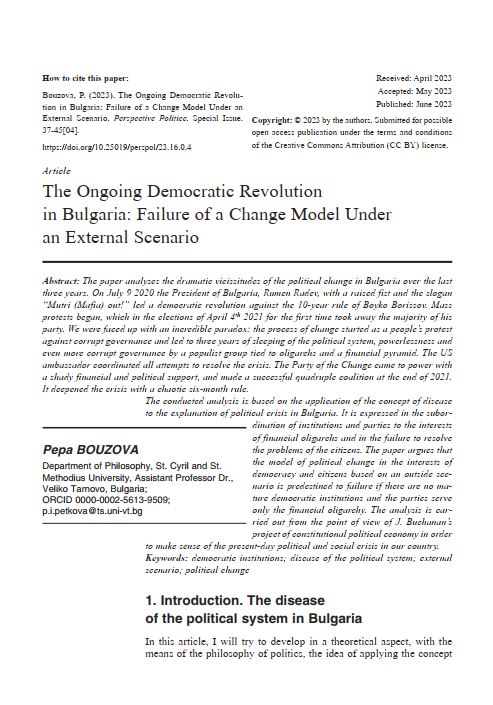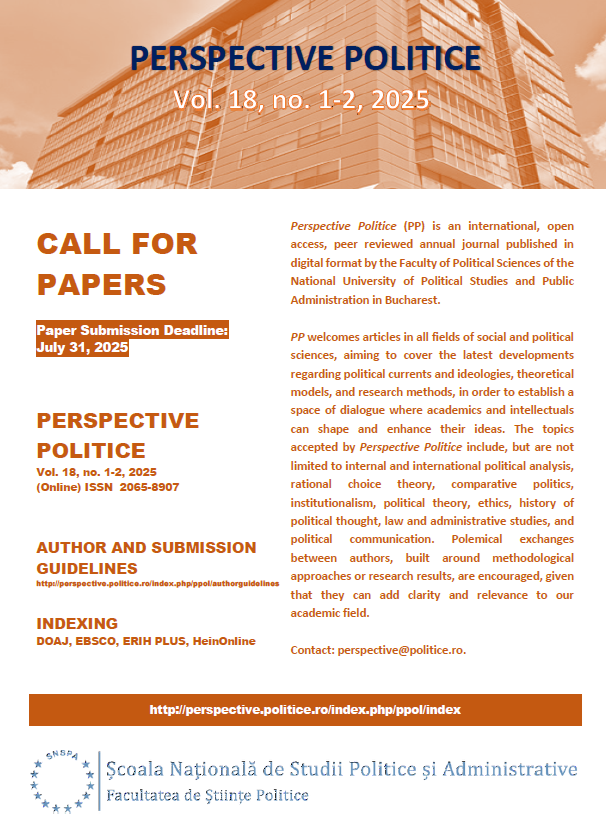The Ongoing Democratic Revolution in Bulgaria: Failure of a Change Model Under an External Scenario
Abstract
The paper analyses the dramatic vicissitudes of the political change in Bulgaria over the last three years. On July 9 2020 the President of Bulgaria, Rumen Radev, with a raised fist and the slogan “Mutri (Mafia) out!” led a democratic revolution against the 10-year rule of Boyko Borissov. Mass protests began, which in the elections of April 4th 2021 for the first time took away the majority of his party. We were faced up with an incredible paradox: the process of change started as a people’s protest against corrupt governance and led to three years of sleeping of the political system, powerlessness and even more corrupt governance by a populist group tied to oligarchs and a financial pyramid. The US ambassador coordinated all attempts to resolve the crisis. The Party of the Change came to power with a shady financial and political support, and made a successful quadruple coalition at the end of 2021. It deepened the crisis with a chaotic six-month rule.
The conducted analysis is based on the application of the concept of disease to the explanation of political crisis in Bulgaria. It is expressed in the subordination of institutions and parties to the interests of financial oligarchs and in the failure to resolve the problems of the citizens. The paper argues that the model of political change in the interests of democracy and citizens based on an outside scenario is predestined to failure if there are no mature democratic institutions and the parties serve only the financial oligarchy. The analysis is carried out from the point of view of J. Buchanan’s project of constitutional political economy in order to make sense of the present-day political and social crisis in our country.

Downloads
Published
Issue
Section
License
Copyright (c) 2023 Pepa BOUZOVA

This work is licensed under a Creative Commons Attribution-NonCommercial-ShareAlike 4.0 International License.



